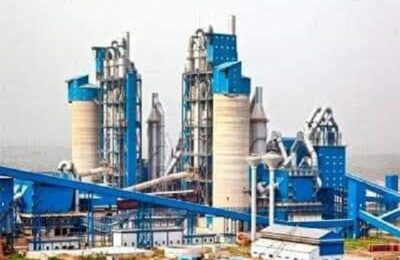In a state notorious for political cacophony, Idris Husseini Kashim—Idris HK—moves with a kind of disarming quietness that unsettles the noisy architecture of power. He is not shouting his relevance; he is living it. Where others chant slogans, he drills boreholes, funds scholarships, and redeems hospital bills for the forgotten. “I am not chasing office,” he once said in Ankpa, “I am chasing transformation.” That sentence alone has become a lightning rod—turning him from an observer into a phenomenon.
Kogi’s political class does not quite know what to do with him. He’s not a career politician, yet his influence creeps into the grassroots like rainfall through thirsty soil. He wears humility as armour, empathy as strategy. “In every community he touches, there’s a signature of conscience,” says Mallam Ibrahim Sule. Even his café business—Crush Café—has morphed into a social nerve center, a sanctuary for youths disillusioned with the old guard. His style is almost prophetic—unannounced, undistracted, and deliberate.
But his calm defiance is not without danger. In a land where loyalty is currency and silence is suspect, neutrality can be treason. “Idris is rewriting what it means to be relevant in Kogi,” political analyst Halima Yusuf told Radio Kogi. “He is walking a sacred line between admiration and assassination—of character or ambition.” That’s the paradox: he commands respect without command; he influences without an office; he builds without bureaucracy. And in a nation where visibility is often mistaken for value, that is his rebellion.
His philanthropy has become both shield and sword. To the poor, he is hope materialized; to the elites, he is a mirror reflecting their moral bankruptcy. A senior legislator, who asked for anonymity, muttered recently, “He’s not campaigning, yet he’s gaining followers. That’s dangerous.” Dangerous, indeed—not because he breaks laws, but because he breaks patterns. His brand of leadership feels almost radical in its decency.
Still, critics argue that morality alone cannot rebuild a fractured state. “Philanthropy inspires, but policy reforms,” civic commentator Bamidele Ojo wrote. The critique is valid. For HK’s movement to transcend charity, it must evolve into an ideology—a structure of continuity, not just compassion. Yet, every great transformation begins with one man’s moral audacity. And in HK’s composure lies the possibility of a new political grammar—one written in service, not slogans.
Across Nigeria, the rise of quiet reformers—Kenya’s Boniface Mwangi, Ghana’s Bernard Avle—signals a continental awakening. But Kogi is no Nairobi; its politics is tribal, transactional, and treacherous. “Nigeria rewards noise, not nuance,” activist Comfort Onuh warns, “but HK is proving that quietness can still shake thrones.” In a nation where virtue often dies young, his restraint feels revolutionary—almost dangerous in its purity.
Idris HK may never need a ballot to validate his influence. His revolution is internal—a soft insurgency of conscience against corruption. Whether he remains a servant of the people or becomes a reluctant power broker, history will remember this season of moral turbulence. As a student in Kogi Polytechnic said after one of his visits, “He didn’t bring money. He brought dignity. And that’s rarer than gold.” In that sentence lies the pulse of his movement—and perhaps, the prophecy of Kogi’s next awakening.
– Inah Boniface Ocholi writes from Ayah – Igalamela/Odolu LGA, Kogi state.
08152094428 (SMS Only)




